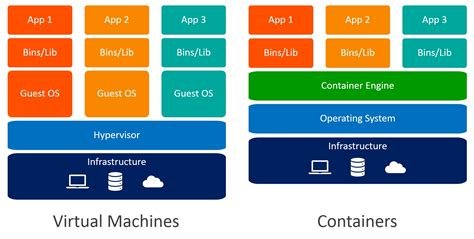Introduction:
Welcome to the world of big data and cloud computing, where vast amounts of information are processed and analyzed, and where the power of Linux and the flexibility of Docker converge. In this era of technological advancements, data is the new oil, and cloud computing has become the go-to solution for businesses of all sizes. In this article, we will dive deep into the world of big data and cloud computing, exploring how Linux and Docker have revolutionized these fields and paved the way for innovation.
As we embark on this journey, let us first understand the concept of big data and cloud computing and their significance in today’s technology-driven world. Big data refers to the enormous volumes of structured and unstructured data that organizations collect and analyze, seeking valuable insights and patterns. With the exponential growth of data, traditional methods of storage and analysis became insufficient. This is where cloud computing comes into play.
The cloud offers a scalable and on-demand solution for storing, processing, and analyzing vast amounts of data. It provides businesses with the ability to access computing resources over the internet, eliminating the need for costly infrastructure investments. Linux, an open-source operating system, has become synonymous with the cloud, providing a robust and secure foundation for cloud-based services and applications.
Now, let us delve deeper into the strengths and weaknesses of big data and cloud computing with Linux and Docker:
Strengths of Big Data and Cloud Computing with Linux and Docker:
1. Scalability:
One of the major advantages of leveraging big data and cloud computing with Linux and Docker is the scalability they offer. With the ever-increasing data volumes, businesses need systems that can handle the growth. The cloud allows organizations to scale their resources up or down based on demand, ensuring optimal performance and cost-efficiency. Linux and Docker provide a flexible and agile environment for managing and deploying applications, accommodating the scalability requirements of big data projects.
2. Cost Savings:
Another significant advantage of utilizing big data and cloud computing with Linux and Docker is the cost savings it brings. Traditionally, setting up on-premise data centers and maintaining hardware and software infrastructures incurred substantial expenses. With the cloud, businesses can leverage pay-as-you-go models, only paying for the resources they actually use. Linux and Docker further enhance cost savings by enabling efficient resource allocation and containerization, optimizing the utilization of computing resources.
3. Flexibility and Portability:
Linux and Docker provide unparalleled flexibility and portability to big data and cloud computing environments. Docker containers allow for easy deployment, enabling applications and their dependencies to run consistently in any environment. This flexibility enables seamless migration and replication of applications across different cloud platforms and even between on-premise and cloud infrastructures. Linux, as an open-source platform, enables customization and adaptation to specific requirements, empowering businesses to tailor their solutions to meet their unique needs.
4. Enhanced Security:
Security is a critical concern when dealing with big data and cloud computing. Linux, being an inherently secure operating system, provides a robust foundation for building secure cloud environments. With Docker, applications are encapsulated within containers, ensuring isolation and reducing the attack surface. Linux’s extensive security features, combined with Docker’s containerization, offer enhanced protection against data breaches and unauthorized access.
5. Rapid Development and Deployment:
Big data and cloud computing projects require agility and speed in development and deployment processes. Linux and Docker accelerate application development by providing streamlined workflows and enabling rapid prototyping. Docker’s containerization eliminates dependency issues, simplifying the deployment of applications across different environments. Linux’s rich development ecosystem, along with Docker’s container management capabilities, expedite the release cycles and enable businesses to deliver value faster.
6. Real-time Analytics:
With big data and cloud computing, organizations can harness real-time analytics to gain valuable insights and make informed decisions. Linux provides a stable environment for processing large datasets, optimizing the performance of real-time analytics tools. Docker’s containerization enables the deployment of scalable analytical frameworks, facilitating the analysis of streaming data. The combination of Linux and Docker empowers businesses to extract insights from vast volumes of data, enabling faster and more accurate decision-making processes.
7. Collaborative Innovation:
Linux and Docker foster a culture of collaborative innovation within the big data and cloud computing realms. Linux’s open-source nature encourages a community-driven approach, where developers and organizations actively contribute to the improvement and evolution of the operating system. Docker, being an open platform, promotes sharing and collaboration, enabling developers to leverage pre-built containerized applications. This collaborative ecosystem accelerates innovation in big data and cloud computing, driving advancements and pushing boundaries.
Weaknesses of Big Data and Cloud Computing with Linux and Docker:
1. Complexity:
While big data and cloud computing with Linux and Docker offer numerous benefits, the complexity of these technologies can pose challenges. Managing and orchestrating large-scale big data projects requires expertise in Linux and the understanding of containerization principles. Organizations need skilled professionals to handle the intricacies associated with deploying and maintaining cloud-based infrastructures.
2. Security Concerns:
Despite the enhanced security features of Linux and Docker, security concerns remain a challenge in the big data and cloud computing landscape. With the increase in cyber threats, organizations need to implement robust security measures such as encryption, access controls, and regular audits. Failure to adequately address security concerns can lead to data breaches, compromising sensitive information and damaging an organization’s reputation.
3. Integration Complexity:
Integrating big data and cloud computing with existing systems and workflows can be complex and time-consuming. Legacy systems may not be compatible with cloud-based solutions, requiring substantial modifications or replacements. Organizations must invest time and resources in ensuring seamless integration and data synchronization between on-premise and cloud environments.
4. Data Privacy and Compliance:
With the proliferation of data, organizations face challenges in ensuring data privacy and complying with regulations such as the General Data Protection Regulation (GDPR) and the Health Insurance Portability and Accountability Act (HIPAA). Businesses must implement appropriate data anonymization techniques and establish strict access controls to protect sensitive information.
5. Network Dependencies:
Big data and cloud computing heavily rely on network connectivity. Organizations need reliable and high-speed internet connections to access cloud resources and transfer large volumes of data. Network outages or slow internet speeds can disrupt operations and hinder real-time analytics and data processing.
6. Vendor Lock-In:
While the cloud offers scalability and cost savings, organizations face the risk of vendor lock-in. Shifting from one cloud provider to another can be complex and may require re-architecting applications and migrating data. Organizations need to carefully consider the long-term implications of choosing a specific cloud provider and evaluate options for multi-cloud or hybrid cloud strategies.
7. Skill Gap:
The adoption of big data and cloud computing technologies requires a skilled workforce. However, there is a shortage of professionals with expertise in Linux, Docker, and big data analytics. Organizations need to invest in training and upskilling their workforce to bridge the skill gap and fully leverage the potential of these technologies.
Frequently Asked Questions (FAQs) about Big Data and Cloud Computing with Linux and Docker:
1. How does Linux contribute to big data and cloud computing?
Linux provides a secure and robust foundation for cloud-based services and applications. Its open-source nature allows customization and adaptation to specific requirements, enabling businesses to harness the power of the cloud and big data analytics efficiently.
2. What role does Docker play in big data and cloud computing?
Docker revolutionizes big data and cloud computing by enabling containerization, which simplifies the deployment and management of applications across different environments. It eliminates dependency issues and enhances scalability, making it an essential tool in the big data and cloud computing arsenal.
3. How does big data impact decision-making in organizations?
Big data provides organizations with valuable insights that drive informed decision-making. By analyzing large volumes of data, businesses can identify patterns, trends, and correlations, enabling them to make data-driven decisions that can enhance operational efficiency, improve customer satisfaction, and drive innovation.
4. What are the key security considerations when dealing with big data and cloud computing?
Data security is crucial when working with big data and cloud computing. Encryption, access controls, regular audits, and implementing best practices are essential to protect sensitive information and prevent data breaches.
5. Can organizations leverage multiple cloud providers for their big data projects?
Yes, organizations can adopt multi-cloud or hybrid cloud strategies, leveraging the strengths of multiple cloud providers. This approach allows businesses to mitigate the risk of vendor lock-in, optimize costs, and maximize the availability of cloud resources for their big data initiatives.
6. How can organizations address the skills gap in big data and cloud computing?
Organizations can invest in training and upskilling their workforce to bridge the skills gap in big data, cloud computing, and Linux. Collaboration with universities and certification programs can provide employees with the necessary knowledge and expertise to effectively leverage these technologies.
7. What are the potential future advancements in big data and cloud computing with Linux and Docker?
The future of big data and cloud computing holds exciting possibilities. Advancements in areas such as artificial intelligence, machine learning, and edge computing will further enhance the capabilities of Linux and Docker, enabling organizations to extract even greater insights from big data and drive innovation.
Conclusion:
In conclusion, big data and cloud computing, empowered by Linux and Docker, have revolutionized the way businesses store, process, and analyze vast amounts of information. While presenting numerous strengths such as scalability, cost savings, and flexibility, they also pose challenges in areas such as complexity, security, and integration. However, by addressing these challenges and leveraging the potential of big data and cloud computing, organizations can unlock valuable insights, drive innovation, and stay ahead in today’s technology-driven world.
Are you ready to harness the power of big data and cloud computing? Embrace Linux and Docker, and embark on a journey of limitless possibilities. Explore the world of big data, unlock its secrets, and revolutionize your business today.
Disclaimer: The views and opinions expressed in this article are those of the author and do not necessarily reflect the official policy or position of any organization.
 Eltupe Technology And Software Updates
Eltupe Technology And Software Updates




